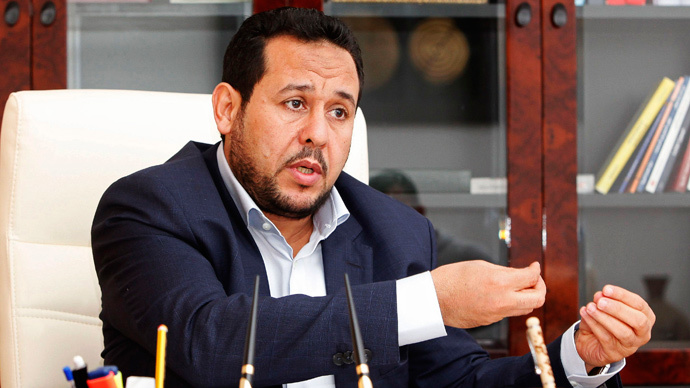UK surveillance court to rule on major privacy case

A British intelligence tribunal is due to rule on a major privacy case relating to Libyan dissident Abdel Hakim Belhaj and alleged government spying on confidential conversations with his lawyers.
Belhaj’s legal representatives brought his case to the Investigatory Powers Tribunal (IPT) after secret documents released by NSA whistleblower Edward Snowden exposed the extent of US and UK surveillance.
The British government has fought to keep a key section of the legal decision secret on the grounds of national security.
James Eadie QC, lawyer for the government, told the IPT it should stick to a policy of “neither confirm, nor deny” known as ‘NCND.’
Eadie told the tribunal: “In circumstances where to depart from the NCND approach would cause damage to national security. The tribunal should adopt an approach which does not reveal the fact that interception has taken place.”
READ MORE: Lawyers ‘illegally’ spied on: UK govt comes clean, but denies ‘deliberate wrongdoing’
Belhaj’s is represented by human rights organization Reprieve and supported by Amnesty International among other charities.
Reprieve argue the government violated the principle of “legal privilege,” which ensures communications between lawyers and clients are confidential.
Laws protecting communications between clients and lawyers date back hundreds of years and are an established part of British common law.
Cori Crider, a director at legal charity Reprieve and one of Belhaj and Boudchar’s lawyers, has previously said the government had endangered the fundamental British right to a fair trial.
“Reprieve has been warning for months that the security services’ policies on lawyer-client snooping have been full of loopholes big enough to drive a bus through,” she said in a statement in February.
“For too long, the security services have been allowed to snoop on those bringing cases against them when they speak to their lawyers. In doing so, they have violated a right that is centuries old in British common law.”
READ MORE: Pressure builds on GCHQ as NGOs challenge mass surveillance in European court
Crider believes information intercepted by surveillance agencies may have been passed on to lawyers or ministers involved in fighting Reprieve’s lawsuit against the British state.
Reprieve are supporting Belhaj in a separate case where he is suing the UK government for its role in his alleged rendition to Libya in 2004, where he was imprisoned and tortured by Colonel Muammar Gaddafi’s regime.
“Only time will tell how badly their case was tainted.
"But right now, the government needs urgently to investigate how things went wrong and come clean about what it is doing to repair the damage,” Crider added.
Belhaj, who is seeking damages in court and a formal apology from the UK for its role in his alleged rendition, has said he will settle with the British government for just £3.












